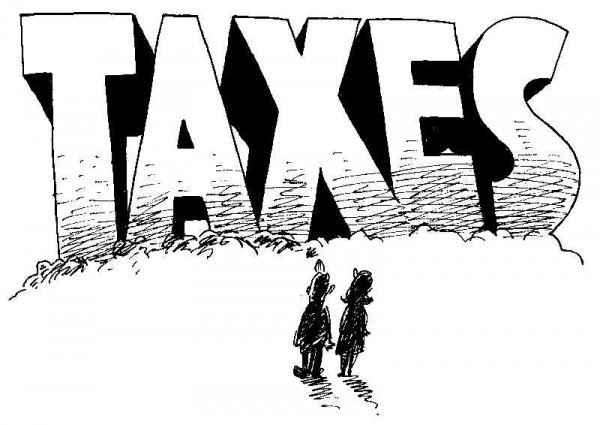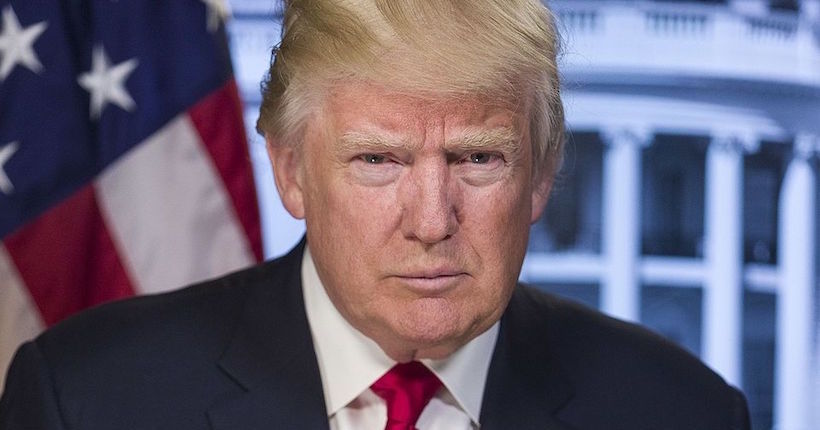Trump set to fight establishment GOP to push through spending cuts
01/26/2017 / By JD Heyes

It has become obvious over many months, during his campaign and in the early days of his administration, that Donald J. Trump is the first “man of the people” president we’ve had in decades. He doesn’t just talk about doing things “for the people,” he actually does do things that are directly benefiting the average, ordinary Americans who the establishment in both parties has forgotten.
But as big a champion for Mr. and Mrs. Main Street as Trump is, he’s got political speed bumps and roadblocks ahead of him as he attempts to give power back to the people, where it has always belonged, and many of them will be erected by members of his own party.
As reported by The Hill, Trump looks to be headed into fights with Republican lawmakers after the honeymoon of inauguration wears off and the real business of governing begins. What’s odd, though, is the subject of the fights.
For decades, the Republican Party billed itself as the “party of smaller government,” even considering at one time the passage of a constitutional amendment that required the federal government to maintain balanced budgets. Now, suddenly, in the age of $20 trillion national debts and globalism, Republicans are backing away from this fiscal requirement. Now, suddenly, there is mounting evidence Trump will get some pushback from the GOP leadership over dramatic cuts he wants to make to federal spending. (RELATED: What’s our new president doing to protect our liberties and our pocketbooks? Find out at Trump.news)
Some push-back is reasonable. Trump has said he also wants to dramatically reduce corporate tax rates and taxes on the American people. That means there will be less guaranteed revenue for the Treasury, and without coinciding cuts to entitlement programs like Social Security and Medicare (which aren’t going to happen), cutting the budget too much would likely mean cuts to discretionary spending programs (roads, bridges, the military, etc.).
Nevertheless, Trump administration officials are currently going through conservative budgets in order to find ways to save money as a means of eliminating the “tremendous waste, fraud, and abuse” that candidate Trump pledged to get rid of during the campaign.
Several proposals that officials are reviewing would certainly be popular among House Republicans, many whom have sought to cut the federal deficit by eliminating government programs they see as unnecessary. However, some of the programs and spending cuts that Trump is eying have supporters in the Republican-controlled Congress and, in particular, the Senate, The Hill noted.
Currently, the Trump team is working hand-in-hand with officials at the Office of Management and Budget to construct the framework for the new administration’s first budget proposal; it’s expected to land in Congress in about 45 days.
In the search for budget savings, White House officials are relying on proposals that were laid out in 2016 by the Heritage Foundation, a conservative think tank, in its “Blueprint for Balance: A Federal Budget for 2017.”
A great deal of cuts outlined in that proposal are very close to those recommended in a 2017 budget plan that was adopted by the Republican Study Committee, a caucus to which a majority of Republicans are members. Rep. Mick Mulvaney, R-S.C., Trump’s incoming budget director, is also a member of the RSC.
Sources told The Hill that a likely source of cuts is the Legal Services Corporation, a federal bureaucracy that provides financial assistance via civil legal aid to low-income Americans. Conservatives have sought for some time to eliminate it because it has become infested with Left-wing Democrats who are beholden to liberal causes. Getting rid of it would save taxpayers $400 million next year. (RELATED: What else is on Trump’s chopping block? Stay current at BigGovernment.news)
However, even that paltry amount of money will be scrapped over; Sen. Orrin Hatch, R-Utah. A senior Judiciary Committee member, said it is a battle that is not worth fighting. “I think that would be a hard thing to do. Even if you wanted to do that, you couldn’t get it through the Senate,” he said.
That’s outrageous, but it goes to show you what Trump and his budget-cutting administration are up against: Careerist politicians from both parties who are beholden to special interests that use government as a means of protecting turf and setting up virtual monopolies.
One way Trump could save money in the budget without congressional assistance: Eliminating 75 percent of regulations, as he pledged to do Monday, which would save billions in enforcement costs alone each year, along with duplicative work.
J.D. Heyes is a senior writer for Natural News and News Target, as well as editor of The National Sentinel.
Sources:
Tagged Under: budget cuts, Congress, Republicans, Trump administration




















